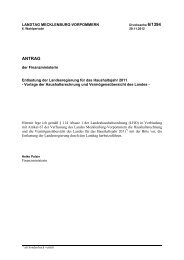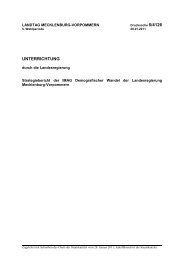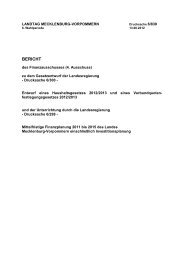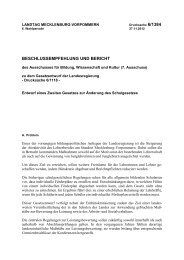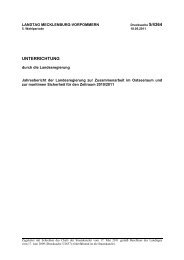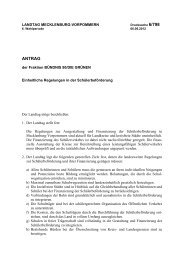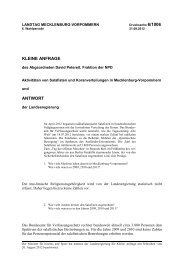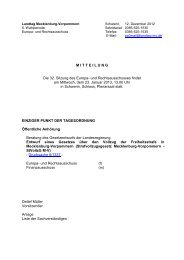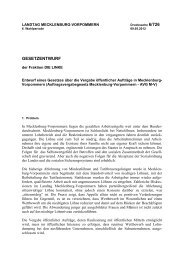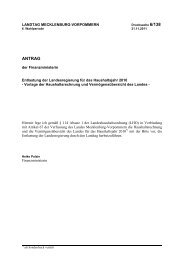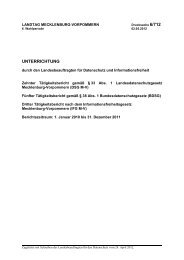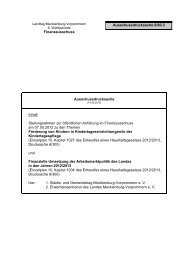Baltic Rim Economies - Baltic Port List
Baltic Rim Economies - Baltic Port List
Baltic Rim Economies - Baltic Port List
You also want an ePaper? Increase the reach of your titles
YUMPU automatically turns print PDFs into web optimized ePapers that Google loves.
Expert article 909 <strong>Baltic</strong> <strong>Rim</strong> <strong>Economies</strong>, 21.12.2011 Quarterly Review 5�2011<br />
Russia’s 2012/2013 CBSS Presidency<br />
By Dmitri Lanko<br />
On July 1, 2012 the Russian Federation will take over the<br />
Presidency of the Council of <strong>Baltic</strong> Sea States from<br />
Germany. This time Russia appears to be better prepared<br />
for the Presidency compared to 2001/2002, when it held<br />
the Presidency for the last time. In late 2000 Russian<br />
diplomats serving for the Second European Department of<br />
the Russian Foreign Ministry, which is responsible for<br />
Russia’s relations with countries of Northern Europe,<br />
including Nordic and <strong>Baltic</strong> States as well as the CBSS and<br />
other regional organizations, did not yet know what the<br />
priorities of the Presidency to start in half a year time were<br />
going to be. Today they know. There will be two major<br />
priorities. First, in line with the keyword of contemporary<br />
Russian politics, it is going to be cooperation for<br />
modernization. Second, in line with the guidelines of<br />
Russian policy towards Europe in general, it is going to be<br />
simplification of visa regimes.<br />
The focus on modernization underlines the continuity<br />
between the Russian Presidency and the current German<br />
Presidency. One aim of the German Presidency was the<br />
modernize the south-eastern part of the <strong>Baltic</strong> Sea Region,<br />
under which Germany and Russia mean the Kaliningrad<br />
Region of the Russian Federation and neighboring areas of<br />
Lithuania and Poland. In line with that priority SEBA –<br />
Modernization Partnership for South East <strong>Baltic</strong> Area – has<br />
been established. During its presidency, Russia will do its<br />
best to attract more partners from among both public and<br />
private entities, first of all, to attract investors to<br />
infrastructure projects comparable to establishment of the<br />
ferry line connecting the seaport of Baltiysk in the<br />
Kaliningrad Region with both mainland Russia and foreign<br />
ports.<br />
Russia will even go further and propose to establish an<br />
expert group on modernization under the auspices of the<br />
CBSS, taking the Expert Group on Sustainable<br />
Development – <strong>Baltic</strong> 21 as example. At the same time,<br />
Russian modernization discourse is widely criticized both<br />
outside and inside Russia. First, an important part of the<br />
context of modernization in Russia is the presidency of<br />
Dmitry Medvedev in 2008 – 2012, who made<br />
modernization a keyword of his term. As Medvedev is not<br />
planning to seek reelection in 2012, one may predict that<br />
the very word of modernization will disappear from the<br />
vocabulary of Russian diplomats and civil servants.<br />
Second, the outcomes of Medvedev’s modernization face<br />
criticism for its focus on the soft and inability to tackle the<br />
hard problems of contemporary Russian economy.<br />
Water supply infrastructure in Russian cities provides<br />
with a good example here. A feature of the infrastructure,<br />
which Russia inherited from the Soviet Union, is that it has<br />
to undergo maintenance annually; the maintenance usually<br />
takes around three weeks, when hot water is not supplied<br />
to residential buildings. Medvedev’s modernization plan<br />
does not foresee reconstruction of hardware in order to<br />
shorten or even eliminate the three-week-long maintenance<br />
period; instead, it foresees soft improvement – setting a<br />
web site, which informs the residents of when exactly hot<br />
water will not be supplied to their homes. Though being an<br />
improvement, such kind of modernization fails to attract<br />
support of public opinion.<br />
The focus on simplification of visa regimes underlines<br />
the continuity between the Russian Presidency and the<br />
70<br />
Norwegian Presidency, which preceded the German<br />
Presidency. Though fight against trafficking in human<br />
beings was declared a priority of Norwegian Presidency,<br />
Norway decided to achieve it not via strengthening, but via<br />
lightening visa regime with Russia. In early 2011 Russia<br />
and Norway agreed on visa-free travel for residents in a 30kilometer-wide<br />
zone on each side of the border between<br />
the two countries. The agreement will come in force in early<br />
2012. It has already attracted attention of some other<br />
CBSS members: Poland and Lithuania would like to reach<br />
a similar agreement concerning residents of the Kaliningrad<br />
Region and neighboring areas of those countries, Latvia is<br />
interested in an agreement of the kind too.<br />
During its Presidency, Russia will do its best to intensify<br />
negotiations on those agreements. Russian diplomats have<br />
already declared that the Russian-Norwegian agreement is<br />
the first step towards establishment of the common space<br />
of freedom between Russia and the European Union as<br />
agreed between the parties in St. Petersburg in 2003; in<br />
Russian view, the common space of freedom will allow all<br />
Russian citizens to travel visa-free to all Schengen<br />
countries and to the United Kingdom and Ireland. Declaring<br />
a priority within the CBSS being in line with Russian<br />
relations with the EU is a significant change in Russian<br />
policy towards the <strong>Baltic</strong> Sea Region; previously Russian<br />
diplomats have been very skeptical about the role of the<br />
European Commission in the CBSS, especially about its<br />
efforts aimed at standardizing of projects fulfilled under the<br />
auspices of the CBSS and other sub-regional institutions.<br />
During its Presidency, Russia will also seek for<br />
continuity between its Presidency and the forthcoming<br />
Finnish Presidency. Thus, continuity with previous and<br />
future Presidencies is the keyword of Russia’s 2012/2013<br />
CBSS Presidency. Russia has overcome its isolationism in<br />
terms of that it sets top priorities of its Presidency in a<br />
dialogue with foreign partners. However, Russia remains<br />
an isolated country in terms of that its Foreign Ministry<br />
continues being isolated from other Russian actors<br />
interested in cooperation in the <strong>Baltic</strong> Sea Region,<br />
including companies, NGOs and think tanks. Priorities of<br />
Russia’s presidency have not been initiated by those actors<br />
bottom-up. Instead, Russian Foreign Ministry will seek for<br />
partners in Russia to implement the priorities top-down.<br />
Those wishing to see improvements in this aspect must<br />
wait till Russia’s 2023/2024 CBSS Presidency.<br />
Dmitri A. Lanko<br />
Associate Professor<br />
St. Petersburg State<br />
University<br />
Russia<br />
� Pan-European Institute � To receive a free copy please register at www.tse.fi/pei �



